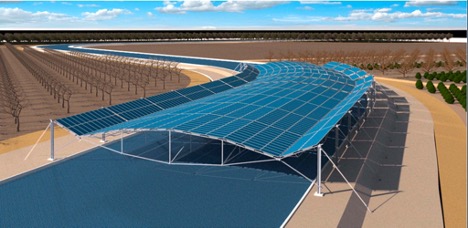This post is the third in a series titled “Real Talk on Reliability,” which will examine the reliability needs of our grid as we move toward 100 percent clean electricity and electrify more end-uses on the path to a climate…
Blog
Our blogs are accessible under the CC BY license. Users are free to copy, distribute, transform, and build upon the material as long as they credit Energy Innovation Policy and Technology LLC® for the original creation and indicate if changes were made.
Living In The Cold: Addressing The Inequalities Of Heating Energy Poverty In Winter
Energy Innovation partners with the independent nonprofit Aspen Global Change Institute (AGCI) to provide climate and energy research updates. The research synopsis below comes from AGCI’s Emily Jack-Scott and Liz Carver. A full list of AGCI’s updates is available online. Winter is…
When The Glaciers Are Gone: Managing For Biodiversity
Energy Innovation partners with the independent nonprofit Aspen Global Change Institute (AGCI) to provide climate and energy research updates. The research synopsis below comes from AGCI’s Emilio Mateo. A full list of AGCI’s updates is available online. Mountain glaciers and polar ice caps are…
The Future Of Operational Grid Reliability Can Be Bright With Clean Energy
This post is the second in a series titled “Real Talk on Reliability,” which will examine the reliability needs of our grid as we move toward 100 percent clean electricity and electrify more end-uses on the path to a climate…
More Water And More Energy: The Potential Win-Win Of Floating Photovoltaics
Energy Innovation partners with the independent nonprofit Aspen Global Change Institute (AGCI) to provide climate and energy research updates. The research synopsis below comes from AGCI’s Tanya Petach. A full list of AGCI’s updates is available online. In arid river basins…
Electric Trucks Are A Gamechanger If Strong Policy Leads The Way
This piece was authored by Muhammad Abdullah, an 2023 summer Transportation Policy intern with Energy Innovation and Energy Innovation’s Chris Busch, Director Transportation and Senior Economist. Ella Kissi-Debrah was born, raised, and died a tragically early death in south London,…
Harnessing U.S. Offshore Wind Is A Generational Opportunity To Create Jobs And Cut Climate Pollution
This piece was authored by Paulina Vazquez Robles, an 2023 summer communications intern with Energy Innovation The U.S. has some of the world’s best offshore wind resources, but we’ve barely begun to tap into them– to date, only seven offshore…
EV Fill Up Savings
With a significant uptake in electric vehicles (EVs) hitting the road, drivers will need to learn a new skill: determining how much it costs to fill up their EV. Unlike gasoline prices that are clearly displayed on roads nationwide, most…
Loneliness, Isolation, And Climate Solutions: Is There A Connection?
Energy Innovation partners with the independent nonprofit Aspen Global Change Institute (AGCI) to provide climate and energy research updates. The research synopsis below comes from AGCI James C. Arnott. A full list of AGCI’s updates is available online at https://www.agci.org/resources?type=research-reviews. The…
It’s Time To Rethink Grid Reliability
This article is the first in a series entitled “Real Talk on Reliability,” which will examine the reliability needs of our grid as we move toward 100% clean electricity and electrify more end-uses on the path to a climate stable…










